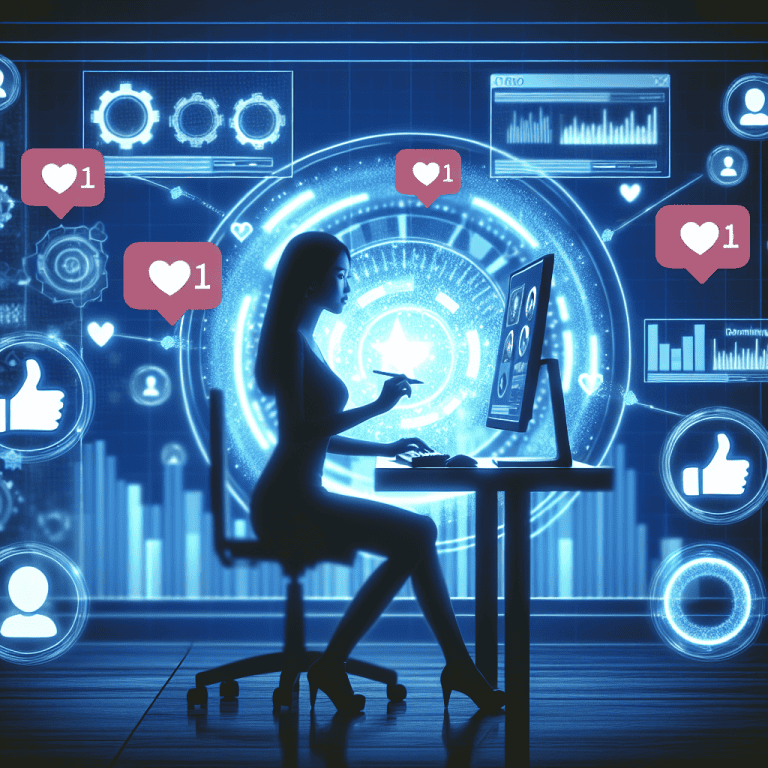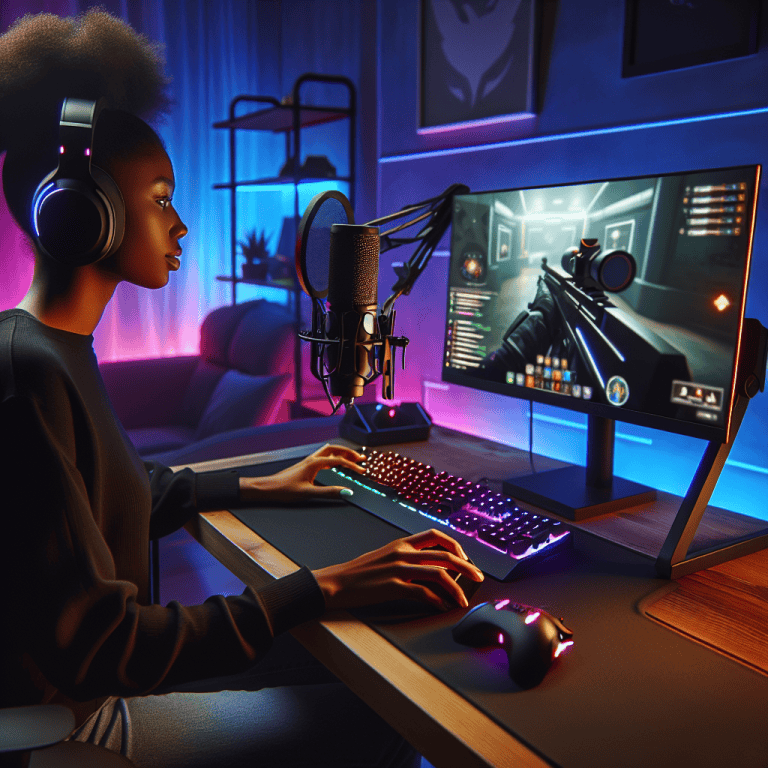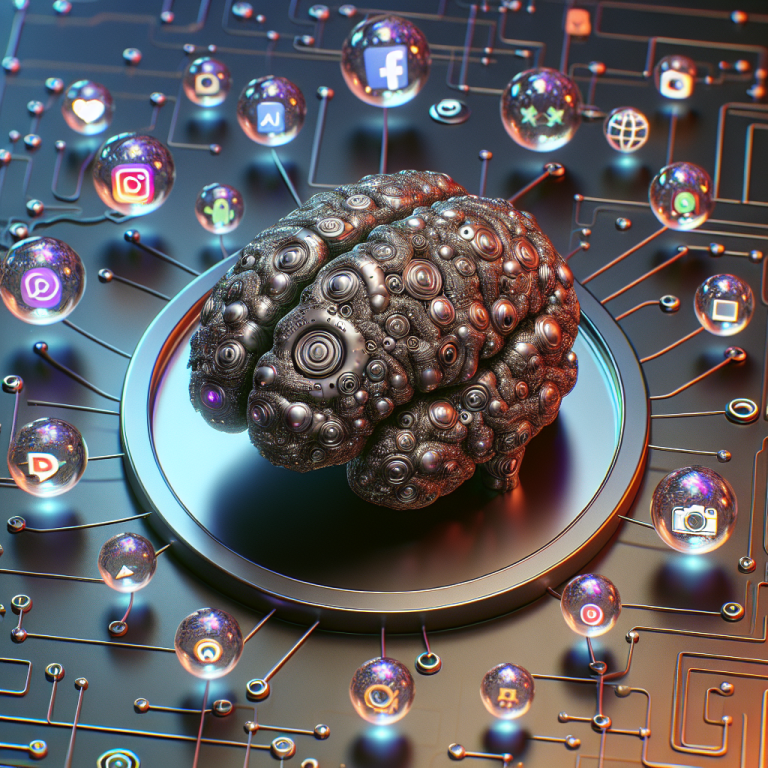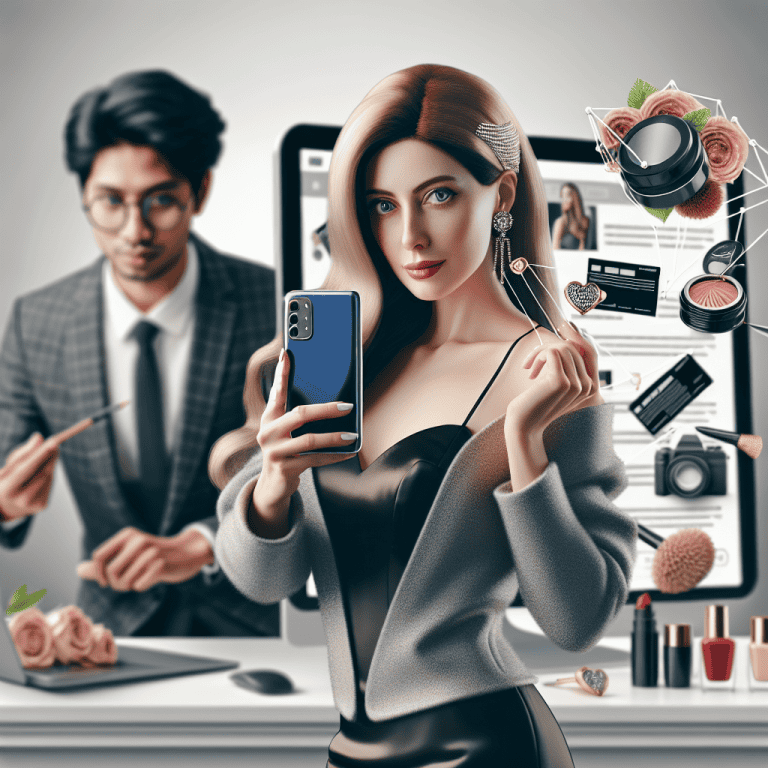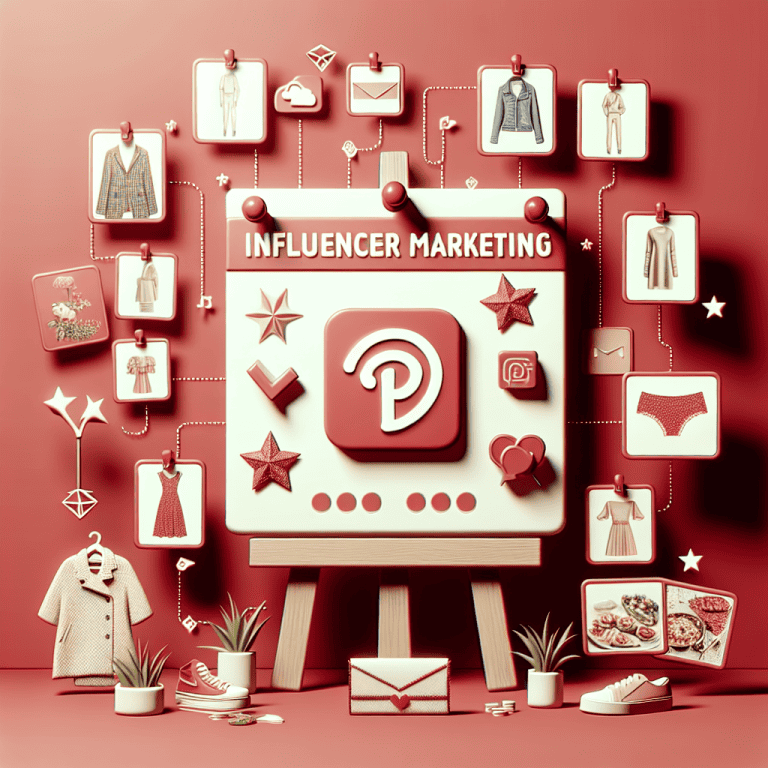Best AI Influencer Strategies to Boost Your Brand in 2025
AI Influencers are digital personalities created using advanced algorithms and AI. They offer innovative ways for brands to connect with audiences online. In this article, you’ll discover what AI influencers are, how they can enhance your marketing strategies, and practical tips for leveraging AI influencers to boost your brand. By understanding the role of the AI influencer, you can effectively integrate them into your campaigns.
Key Takeaways
AI influencers are virtual entities powered by advanced algorithms, allowing brands to engage audiences in innovative and customizable ways that differ from traditional human influencers.
The advantages of utilizing AI influencers include creative flexibility, cost-effectiveness, and consistent branding, making them a valuable asset in modern marketing strategies.
Ethical considerations regarding authenticity, representation, and compliance with regulations are crucial for brands using AI influencers to ensure trust and credibility in their marketing efforts.
Understanding AI Influencers
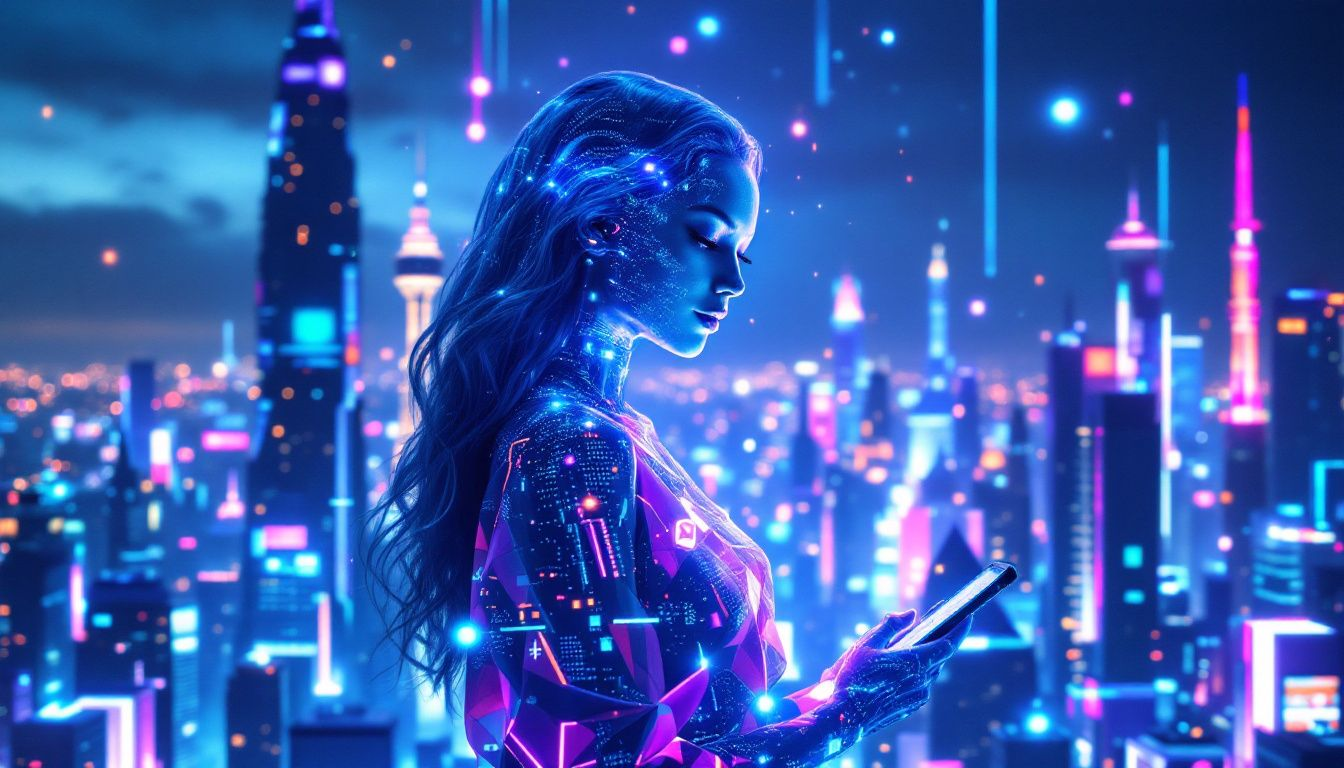
AI influencers are virtual personalities powered by artificial intelligence, created using advanced algorithms, computer graphics, and machine learning to mimic human expressions and behaviors. These digital creations are entirely virtual, presenting themselves as relatable and engaging figures on social media. The technology behind AI influencers allows them to emulate human behavior convincingly, often leading users to believe they are interacting with real people.
The concept of virtual influencers dates back to the 1930s with characters like Cynthia the mannequin, setting a precedent for digital marketing. Today’s AI influencers, however, are far more sophisticated, leveraging the latest advancements in artificial intelligence to engage audiences in unprecedented ways. They are a far cry from their early predecessors, offering brands new avenues to connect with consumers.
Unlike traditional human influencers, Artificial Intelligence influencers are entirely fabricated characters without genuine human experiences. This distinction raises interesting ethical questions, particularly around transparency and authenticity, as these virtual personalities often create a misleading impression of human authenticity.
Benefits of Using AI Influencers for Marketing
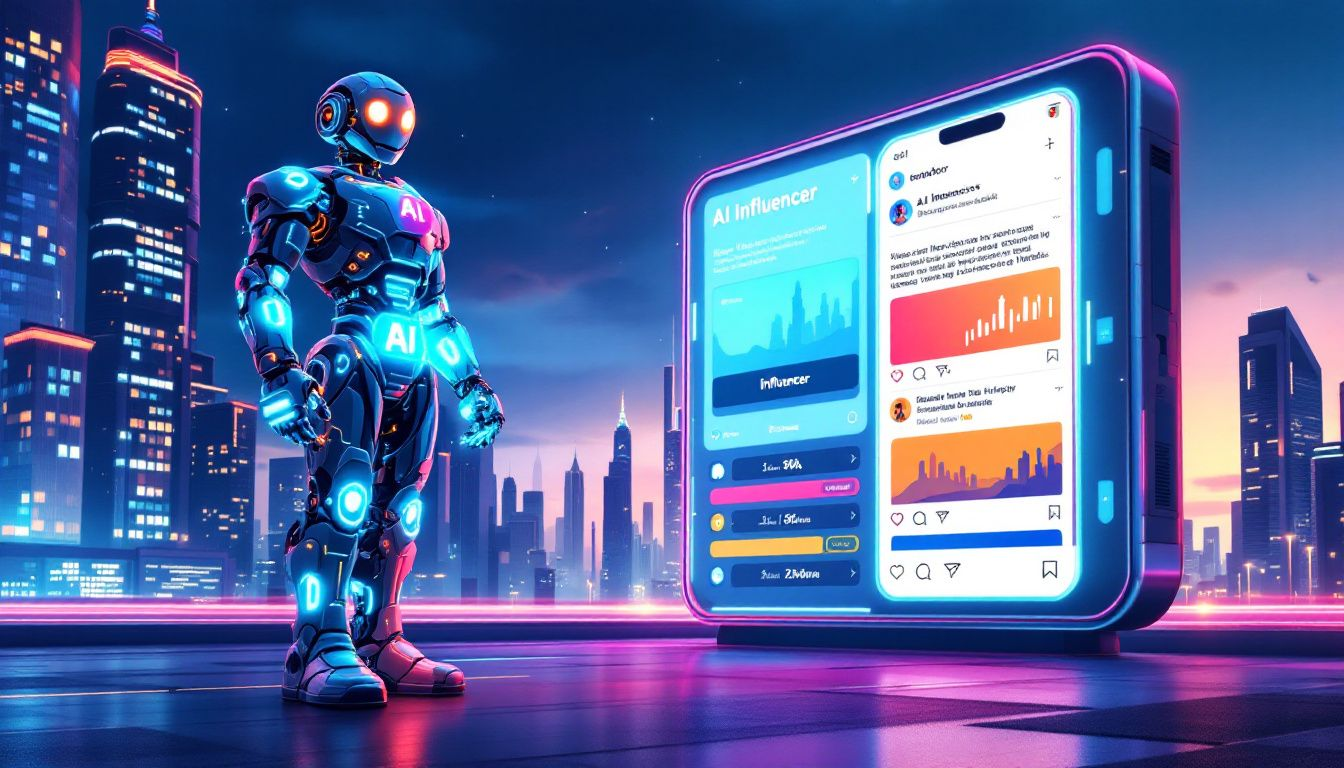
These influencers are transforming how brands engage with consumers in the marketing landscape. They offer unique advantages difficult to replicate with human influencers, enabling brands to reach new demographics and engage consumers innovatively. A key benefit is their ability to be tailored to meet specific marketing goals and target demographics, providing unparalleled customization and precision.
These influencers are designed using a combination of advanced technology and creativity, allowing them to simulate human-like interactions and create engaging, consistent content. This opens up a world of possibilities for brands to explore, from creative flexibility to cost effectiveness and consistent branding.
Examining these benefits in detail reveals their potential to transform marketing strategies.
Creative Flexibility
AI influencers are highly customizable, allowing brands to alter their personalities and styles with ease. This flexibility enables brands to push the boundaries of advertising, crafting personalized and engaging content that resonates with their target audience. Whether it’s through posts, stories, or videos, AI influencers can captivate audiences with a mix of various content forms, keeping the engagement fresh and exciting.
An AI influencer can don a chic style one day and switch to a more casual look the next, all without the logistical constraints that human influencers face. This creative freedom allows brands to experiment with different approaches and find what resonates best with their audience, ultimately leading to more effective marketing campaigns.
Cost Effectiveness
One of the standout benefits of AI influencers is their cost effectiveness compared to human influencers. Without the need for travel, accommodation, or other logistical expenses, brands can significantly reduce their marketing costs. High-profile AI influencers like Lil Miquela, for instance, can command around $9,000 per post, which is often more affordable than comparable human influencers.
These influencers can operate 24/7 without breaks, enabling continuous content creation and engagement. This around-the-clock availability allows brands to maintain a constant online presence and engage with their audience at any time, a key advantage over human influencers who have natural limits.
Nearly half of current influencer marketing strategies now incorporate AI, enhancing operational efficiency and maximizing impact.
Consistent Branding
Maintaining consistent branding is crucial for creating a recognizable and reliable presence in the digital marketplace. AI influencers can be programmed to ensure that the brand’s identity is maintained across various platforms, providing a seamless and unified brand experience. This consistency is especially important for high-end brands and luxury fashion brands, where brand image is everything.
AI influencers can align perfectly with the brand’s message, avoiding the inconsistencies that sometimes arise with human influencers. This ability to promote products and maintain a strong presence ensures that the brand’s reputation remains intact and that the audience receives a cohesive message.
Popular Influencers to Follow
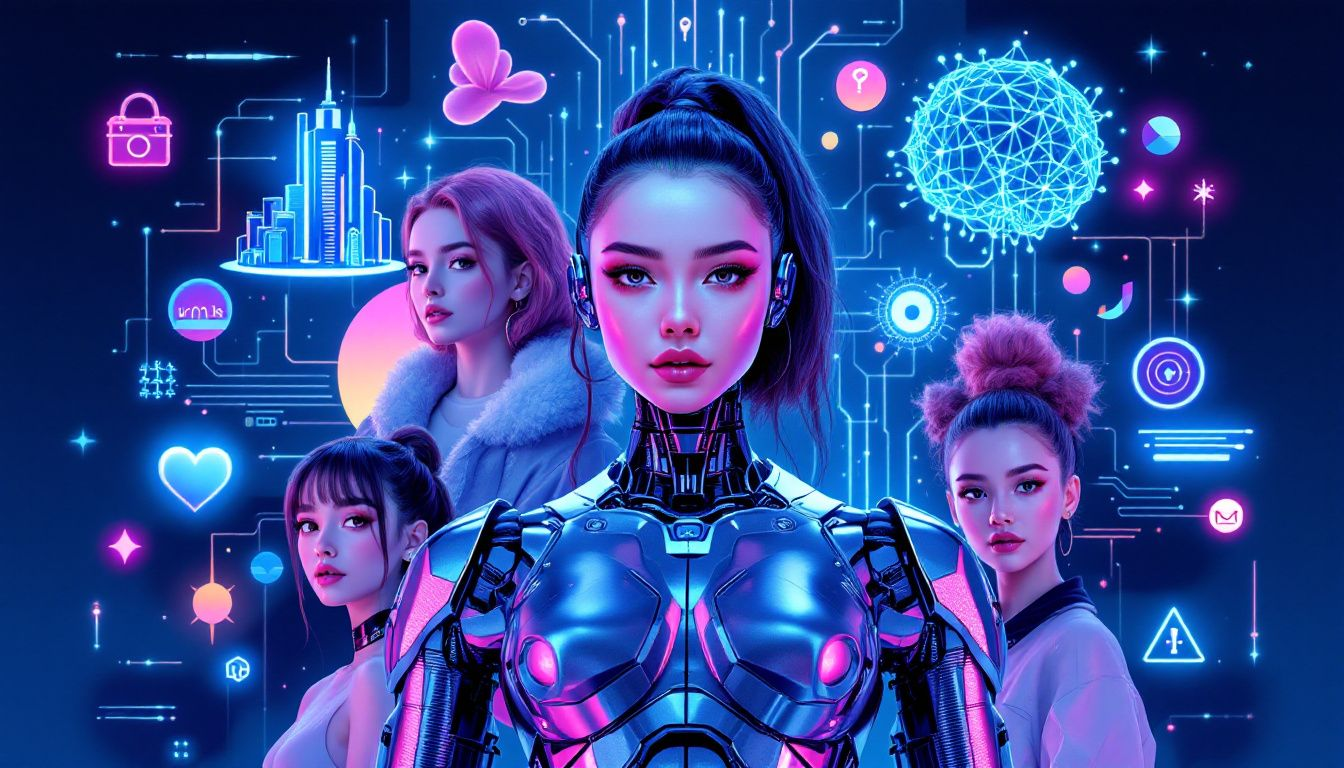
The AI influencer space is populated with a variety of unique and engaging virtual influencers who have made significant impacts online. Some of the most popular AI influencers include:
Lil Miquela
Shudu
Lu Do Magalu
Imma
Noonoouri
These virtual personalities have collaborated with notable brands and amassed large followings, demonstrating the power and reach of AI-generated content.
Brands like Dior, IKEA, and Domino’s Pizza have leveraged these AI influencers to engage with social media users and drive influencer marketing campaigns.
Here are some prominent figures in the unique ai influencer world.
Lil Miquela

Lil Miquela, created in 2016, is a 19-year-old robot living in Los Angeles who has become one of the most recognizable AI influencers today. Known for her unique persona and pink hair, Lil Miquela has collaborated with high-profile brands such as Calvin Klein and Prada, establishing herself as a significant figure in the digital marketing space.
With over 3 million followers on Instagram, Lil Miquela has a strong online presence. She has documented major events like the Super Bowl in Las Vegas and created a notable promotional video for BMW, showcasing her versatility and wide-ranging appeal.
Shudu
Shudu is known as the world’s first digital supermodel. She was created by Cameron-James Wilson. With over 240,000 followers on Instagram, Shudu has modeled for luxury brands including Balmain and Fenty Beauty, as well as collaborated with Hyundai, BMW, and Louis Vuitton.
Shudu’s influence in the modeling industry is comparable to that of human models, making her a pioneering figure in the world of AI influencers. Her stunning visuals and high-profile collaborations have cemented her status as a key player in the fashion industry.
Lu Do Magalu
Lu Do Magalu, created by Magazine Luiza in 2003, initially served as an e-commerce assistant before transitioning into a major digital persona. She has appeared on the cover of Vogue Brasil, marking a significant milestone in her digital journey.
Today, Lu Do Magalu enjoys significant online reach with an extensive following on Instagram, showcasing her versatility and appeal in the digital influencer space. Her journey from an e-commerce assistant to a celebrated virtual influencer highlights the potential for digital personas to evolve and grow.
Imma
Imma, a Japanese Artificial influencer, is known for her distinctive bubblegum-pink bob hairstyle and has gained popularity for her unique style. With over 300,000 followers on Instagram, Imma shares content that includes TikTok dance and reaction videos, adding to her widespread appeal.
Created by the agency Aww Inc., Imma’s fashion brand, Astral Body, showcases her influence in the fashion industry. By pretending to be physically present at events, Imma enhances the realism of her digital persona, making her content even more engaging.
Noonoouri
Noonoouri stands out in the digital influencer space due to her blend of high fashion and social consciousness. She promotes sustainability in fashion and has collaborated with prestigious brands such as Dior, Valentino, and Balenciaga.
Her focus on eco-friendly practices and high-profile collaborations highlight her influence and commitment to promoting positive change in the fashion industry. Noonoouri’s unique approach makes her a compelling figure in the Artifical influencer community.
Creating Your Own AI Influencer
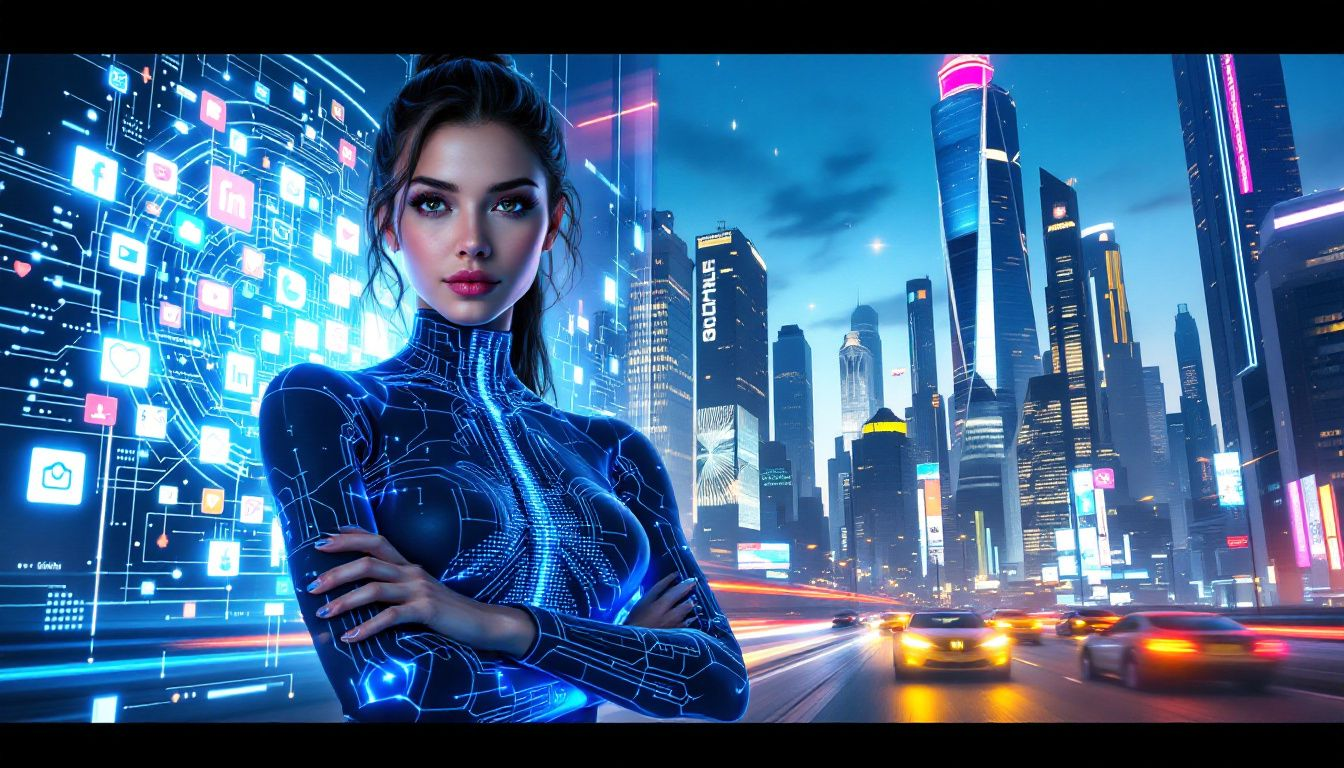
Creating an AI influencer involves using 3D modeling, animation, and AI algorithms to bring a digital persona to life. Brands can customize the appearance and actions of their AI influencers to align with their marketing strategies and target demographics. This process involves advanced algorithms, deep learning models, and graphic design to create realistic and engaging content.
The evolution of technology continues to push the boundaries of what’s possible with AI influencers, leading to groundbreaking advancements that will shape the future of digital marketing. The steps involved in creating your own AI influencer include defining your digital persona, developing AI capabilities, and generating high-quality content.
If you are looking for excellent AI software to create your influencer, we recommend AIfluencer
Defining Your Digital Persona
Creating a digital persona starts with defining specific traits, such as physical appearance and lifestyle to resonate with your target audience. This involves crafting a bio that provides meaningful context and enhances the character’s relatability. You might design a virtual model with a chic style and engaging personality traits that align with your brand’s image to create content.
The beauty of AI influencers lies in their adaptability. Brands can quickly modify AI influencers to fit different marketing strategies as needed, allowing for easier scalability and targeting of specific demographics. This flexibility ensures that your digital persona remains relevant and engaging, driving profit through independent income generation from engaging followers and selling exclusive content.
Developing AI Capabilities
Developing AI capabilities for your influencer involves leveraging advanced algorithms to create lifelike interactions and realistic content. State-of-the-art language and image generation technologies are essential in this process, enabling AI models to engage effectively with audiences. These technologies help AI influencers mimic human behavior and emotional responses, making them more relatable and engaging.
However, the technical aspects of creating and maintaining AI influencers come with challenges. Significant computational power is required, highlighting the technical limitations that brands might face.
Despite these hurdles, the continuous advancements in artificial intelligence promise to make these digital creations even more sophisticated and impactful in the future.
Generating High Quality Content
Generating high-quality content is crucial for maintaining engagement and relevance. A digital persona can be effectively shared across social media platforms and online communities, utilizing AI tools that streamline the content creation process. These tools often come with a low learning curve, making it easier for brands to produce engaging video content and other digital creations.
The variety of content that AI influencers can produce is vast, from lifestyle tips to photo shoots and videos. Leveraging AI-generated content and computer-generated imagery allows brands to create visually stunning and engaging material that captivates their audience. This content promotes products and enhances the overall brand narrative.
Ethical Considerations and Challenges
The rise of AI influencers has sparked a conversation about the ethical implications of their use in marketing. Concerns over authenticity arise because AI influencers lack genuine human experiences, which can undermine trust. There is also a risk of objectifying underrepresented groups if diversity is not prioritized in digital character creation. These ethical dilemmas highlight the need for responsible and transparent use of AI influencers.
Regulatory hurdles and technical limitations also pose significant challenges. Brands must navigate complex regulatory frameworks that are continually evolving, such as the EU’s AI Act and the U.S. executive order on AI, which require disclosure of AI-generated content. Additionally, the quality of AI-generated content and the algorithms used can impact the effectiveness and accessibility of AI influencers.
Authenticity and Trust
Establishing authenticity and trust with AI influencers involves creating a compelling backstory that makes the digital persona relatable. A well-crafted digital persona helps establish strong connections with the audience through relatable characteristics and meaningful interactions. However, the ambiguity surrounding AI influencers’ identities can lead users to believe they are interacting with real individuals, which may deceive consumers.
Human influencers offer a unique strength in their authenticity, providing emotional connections and relatable experiences that a human influencer cannot replicate. There is a risk that AI representations might reinforce stereotypes and fail to provide diverse perspectives.
Ensuring that AI influencers are used transparently and ethically is crucial to maintaining trust and credibility.
Representation and Diversity
Representation and diversity are critical considerations in the creation of AI influencers. Some AI influencers have perpetuated unrealistic beauty standards through young, thin, and female representations, which can reinforce harmful stereotypes. Concerns related to the representation of women and people of color among AI influencers include objectification and reinforcement of stereotypes.
Shudu is recognized in the fashion industry for her efforts to promote diversity and inclusivity. She challenges traditional beauty standards through her work. There is a pressing need for ethical guidelines in creating diverse digital creations to prevent objectification and stereotypes, ensuring that AI influencers reflect a broad range of experiences and identities.
Regulatory and Technical Hurdles
Navigating regulatory and technical hurdles is essential for the effective deployment of AI influencers. Brands must comply with evolving global regulations, such as the EU’s AI Act and the U.S. executive order on AI, which require transparent disclosure of AI-generated content. This compliance ensures that AI influencers are used ethically and responsibly.
Technical limitations, including the significant computational resources required to develop and maintain AI influencers, also pose challenges. Brands need to manage these limitations while ensuring that their AI influencers provide high-quality, engaging content.
By staying ahead of regulatory changes and technological advancements, brands can effectively leverage AI influencers in their marketing strategies.
The Future of AI Influencers
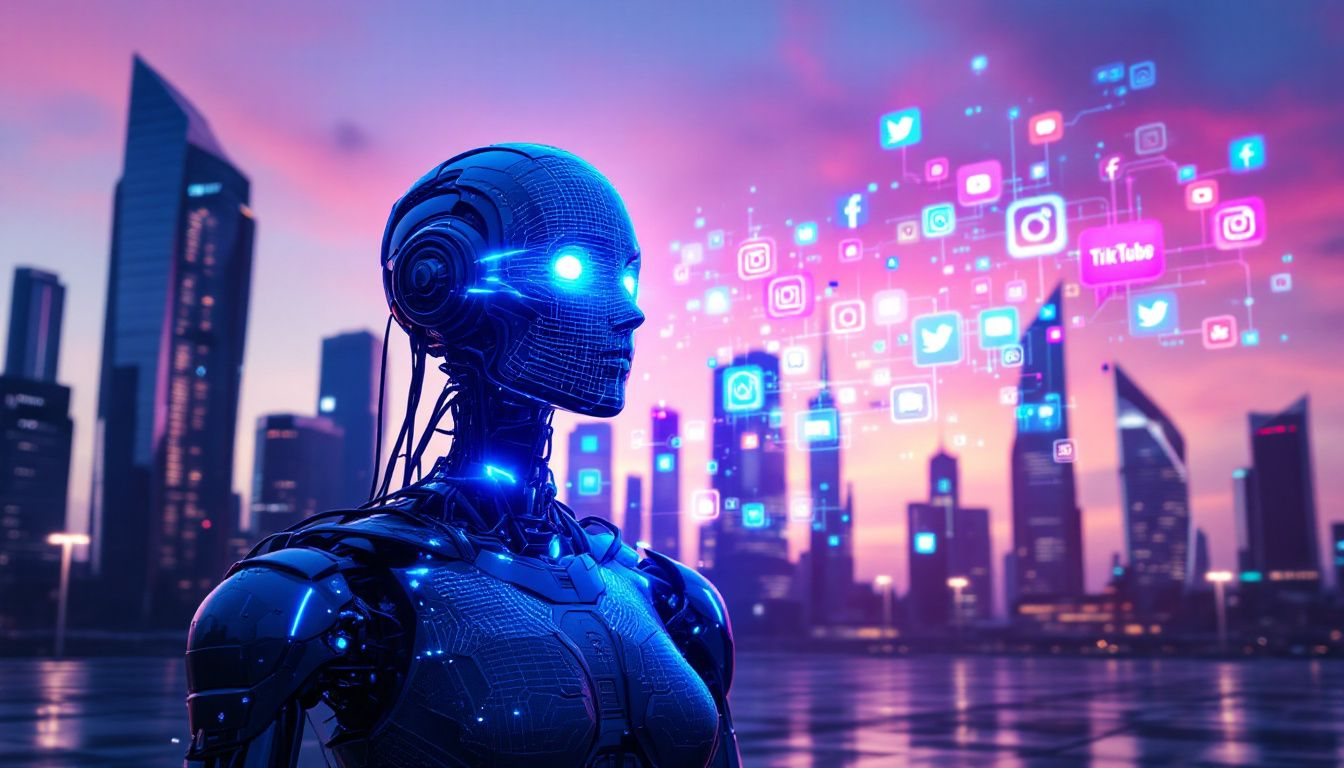
The future of AI influencers is poised to be shaped by significant technological advancements that will enhance their capabilities and influence. These innovations could broaden the horizons of influencer marketing, allowing AI influencers to engage audiences in new and compelling ways. As AI technologies continue to evolve, the potential for more realistic and engaging AI influencers grows exponentially.
AI influencers are expected to coexist with human influencers, each contributing uniquely to the marketing landscape. This coexistence, along with innovations in AI technology and expansion into new markets, will shape the future.
Coexistence with Human Influencers
The future relationship between AI influencers and human influencers will likely involve a blend that leverages the strengths of both. AI influencers will coexist with human influencers, contributing uniquely without replacing them. This complementary dynamic allows brands to benefit from the authenticity and emotional connections of human influencers while also leveraging the innovative and consistent capabilities of AI influencers.
Using advanced algorithms, AI influencers can realistically engage with their audience by mimicking human behavior and emotional responses. This blend ensures that both AI and human influencers can thrive in the influencer marketing space, each offering distinct advantages.
Innovations in AI Technology
Innovations in AI technology are set to revolutionize the capabilities of AI influencers. Advanced algorithms like the Leonardo Diffusion XL Model are crucial for producing realistic visuals, enabling AI influencers to generate high-quality, engaging content. These technologies allow AI influencers to operate continuously, overcoming the time limitations that human influencers face.
The scalability of AI influencers enables them to reach global audiences and cater to diverse cultural contexts effortlessly. As AI technologies advance, the potential for AI influencers to deliver more realistic and immersive experiences will only increase, making them an integral part of future marketing strategies.
Expansion into New Markets
AI influencers are expected to penetrate new social media platforms and diverse industries globally, expanding their reach and influence. This expansion will allow AI influencers to engage with broader audiences and adapt their personas to fit various contexts. From professional networks to e-commerce, the potential for AI influencers to impact multiple sectors is vast.
Brands can leverage AI influencers to promote products and drive engagement across different platforms, ensuring a strong presence in new markets. This versatility makes AI influencers a powerful tool for brands looking to innovate and expand their marketing efforts.
Summary
In summary, AI influencers represent a transformative force in the world of digital marketing. Their ability to provide creative flexibility, cost effectiveness, and consistent branding offers unique advantages over traditional human influencers. By following popular AI influencers like Lil Miquela, Shudu, Lu Do Magalu, Imma, and Noonoouri, brands can gain insights into effective AI influencer strategies.
Creating your own AI influencer involves defining a digital persona, developing AI capabilities, and generating high-quality content. However, ethical considerations and challenges such as authenticity, representation, and regulatory compliance must be addressed to ensure responsible use. The future of AI influencers looks promising, with advancements in AI technology and expansion into new markets offering exciting possibilities.
As you embark on your journey with AI influencers, remember that the key to success lies in balancing innovation with ethical responsibility. Embrace the potential of AI influencers to boost your brand and create meaningful connections with your audience.
Frequently Asked Questions
What are AI influencers?
AI influencers are virtual personalities created through advanced algorithms and machine learning, designed to imitate human expressions and behaviors. They represent a new realm of digital engagement and marketing.
How do AI influencers benefit brands?
AI influencers benefit brands by providing creative flexibility, cost effectiveness, and consistent branding that can be specifically tailored to marketing goals and target audiences. This unique approach allows for more strategic and effective promotional efforts.
Who are some popular AI influencers?
Popular AI influencers include Lil Miquela, Shudu, Lu Do Magalu, Imma, and Noonoouri, who have effectively engaged audiences and collaborated with major brands. Their growing presence highlights the blend of technology and creativity in today’s digital landscape.
What are the ethical considerations when using AI influencers?
Ethical considerations when using AI influencers center around authenticity, representation, and regulatory compliance. It is crucial to ensure transparency and responsibility in their deployment to maintain trust and prevent the perpetuation of stereotypes.
What is the future of AI influencers?
The future of AI influencers is promising, with advancements leading to more realistic and engaging digital personalities. They are set to coexist with human influencers, unlocking new opportunities for brands in various markets.

